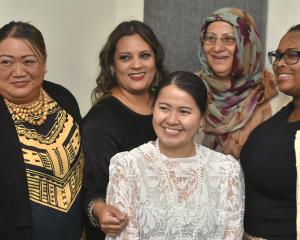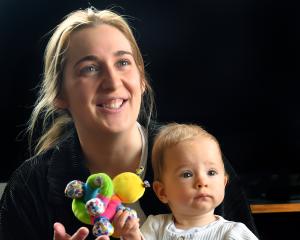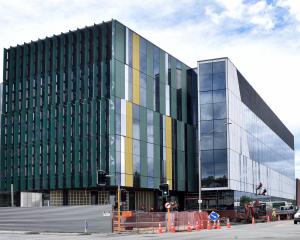
The documents reveal that in August the board had already planned an "0800 hotline" for concerned patients, something that was not set up until two months later.
Officials had been preparing for a mid-October public disclosure, but this was pushed back by a couple of weeks.
On November 1, the board went public with news 30 eye patients suffered a degree of permanent sight loss from appointment delays in 2015-16, and there are more cases outside of that time period. It disclosed more than 4600 patients were overdue for eye appointments.
Despite extensive pre-planning for the release of the news, the board was scrambling to define its message hours after it had gone public. Interim SDHB chief executive Chris Fleming told SDHB and ministry staff there was "an issue" in a proposed media response to RNZ.
"Southern’s issue is not just aged-related macular degeneration ... it is right across the board," Mr Fleming said.
Part of Mr Fleming’s email was redacted by ministry officials before it was released to the ODT.
The documents show the ministry tried to get the DHB to undertake to eliminate the backlog at Dunedin Hospital by mid-2017. This is the deadline at Southland Hospital, but the board resisted the ministry’s pressure, and there is no specific deadline for Dunedin Hospital.
"We are keen to ensure that Dunedin patients get access by June 2017, along the same timeline as those in Southland," a senior ministry official wrote in an email to the DHB in November.
The communications plan includes talking points, key messages, and details of how different "audiences" would be handled.
A ministry official suggested changes to the communications plan and the proposed letters to affected patients.
"Questions will be asked as to when the backlog will be resolved — I appreciate you cannot answer this given your challenges, however just some more thought as to how this will be answered, is it possible to provide some broad timelines?" the official said of the communications plan.
The official thought the DHB should also change the patients’ letter in respect of how long it would take to clear the backlog.
"Instead of saying ‘many months’ could it be changed to something like ‘sometime’ if you cannot be more explicit at this time?"
The board was advised not to frame the problem as potentially a national one, as that could create alarm in other districts.
This week the SDHB said it could not provide an update on the backlog of patients because of staff availability, but would do so in the new year. Earlier this month, it released figures showing the backlog had increased.
The documents include a letter from the Health and Disability Commissioner to the ministry in January 2016, advising that the HDC had received two complaints about eye appointment delays at Southland Hospital.
A ministry briefing to Dr Coleman on November 1 appears to play down the problem, saying the board became aware of its extent only in August 2016.
As well as the HDC alert to the ministry, there had been stories in the ODT, in December 2015 and January 2016, including the case of Koby Brown who lost the sight in one eye because of delays at Southland Hospital.
The ODT asked Mr Fleming about this issue, and he reiterated that the board had known about the problem in Southland Hospital since 2014, and more recently at Dunedin Hospital.












